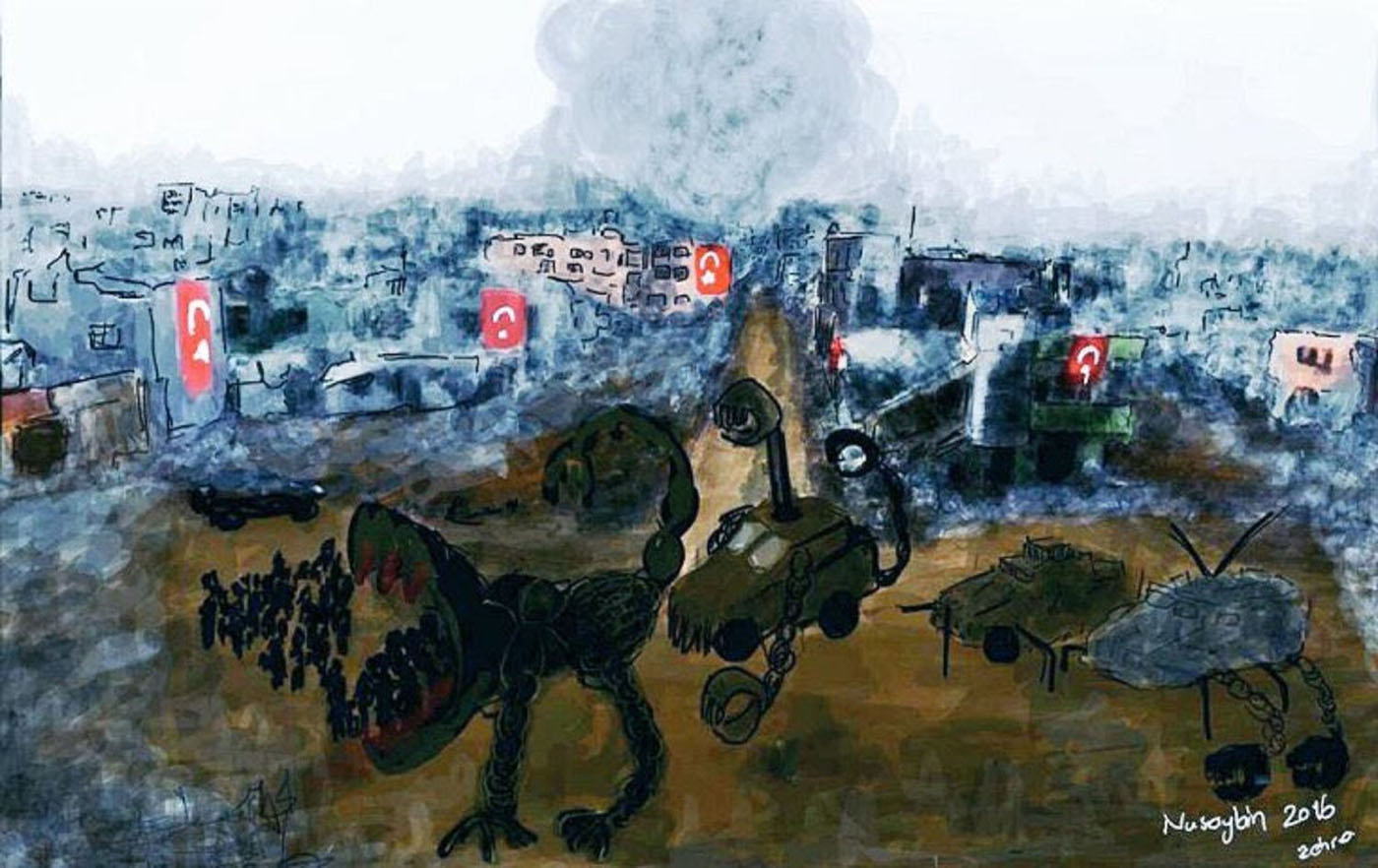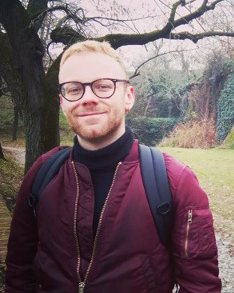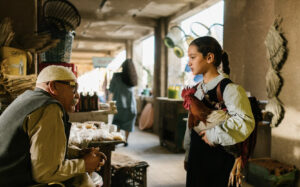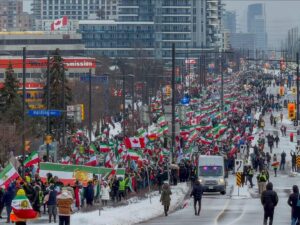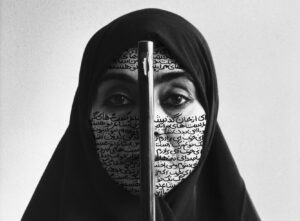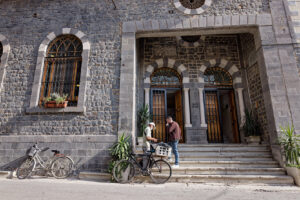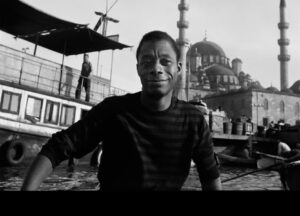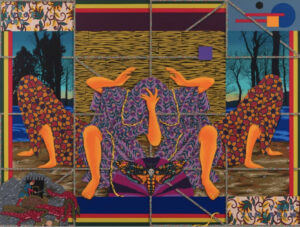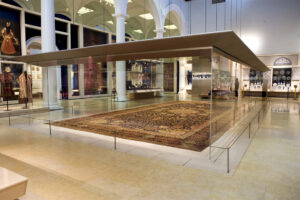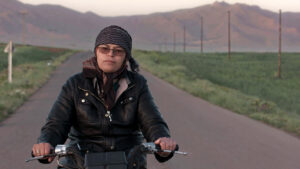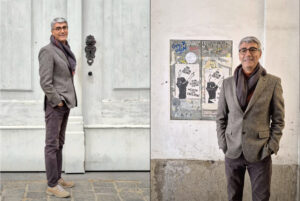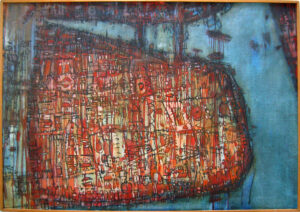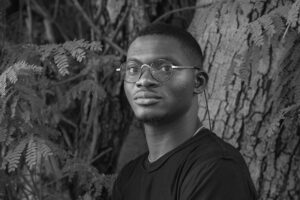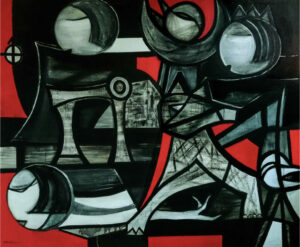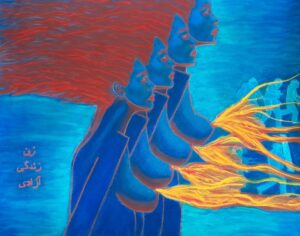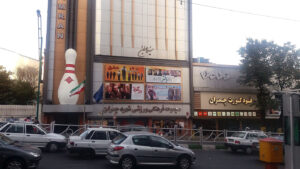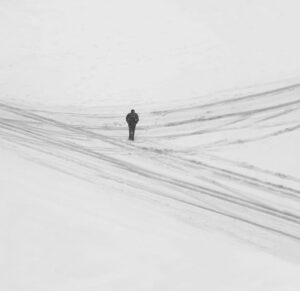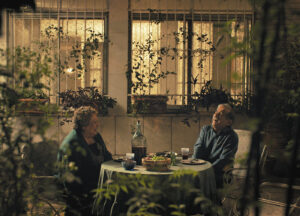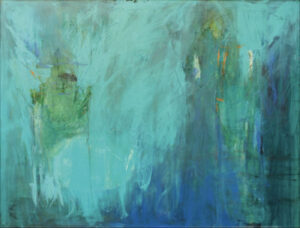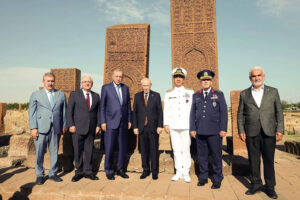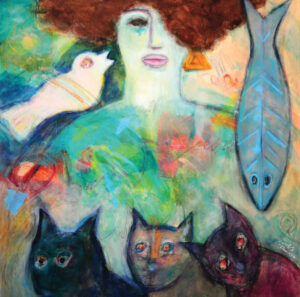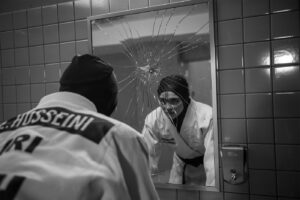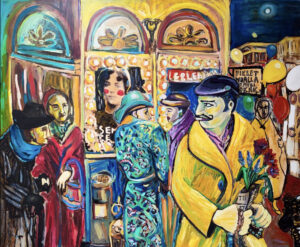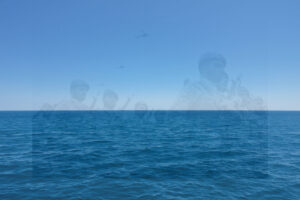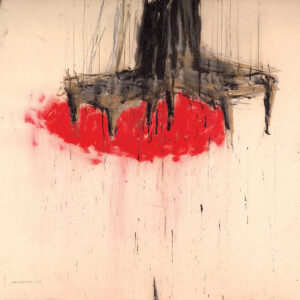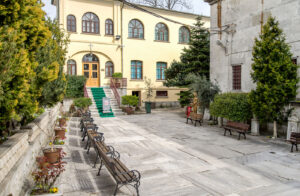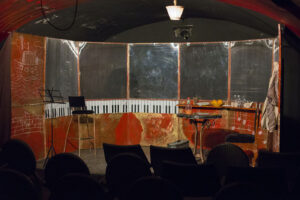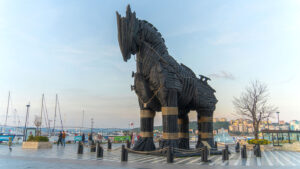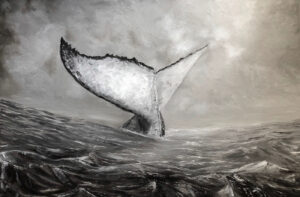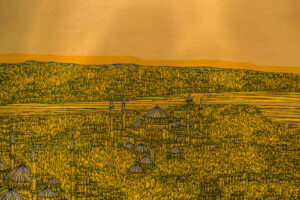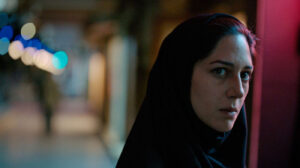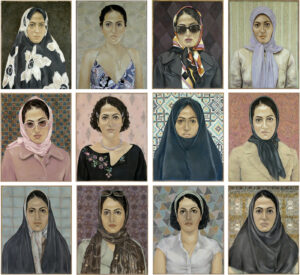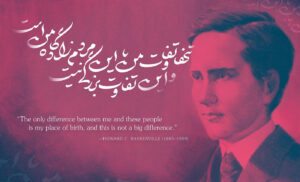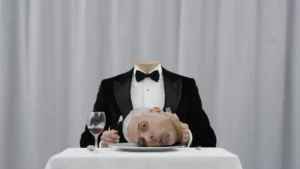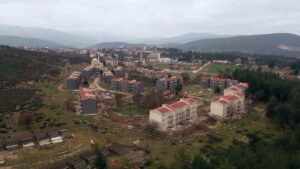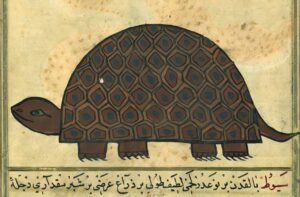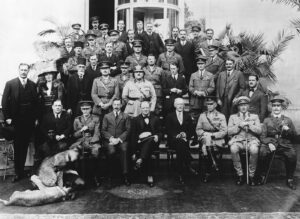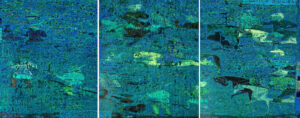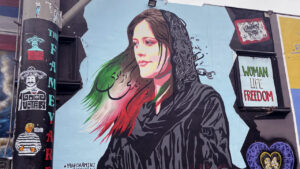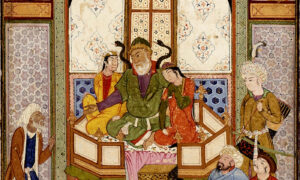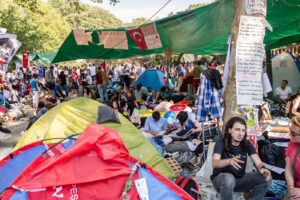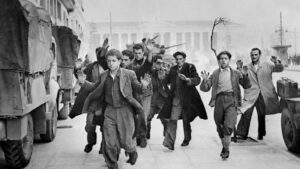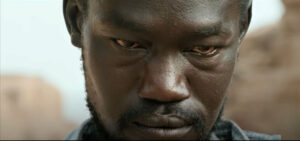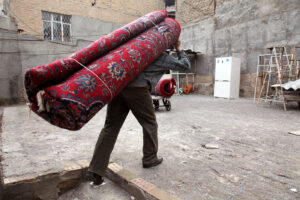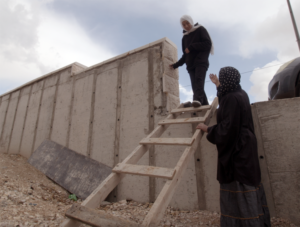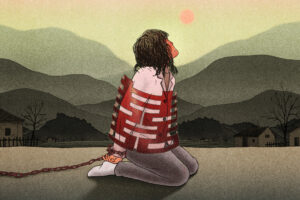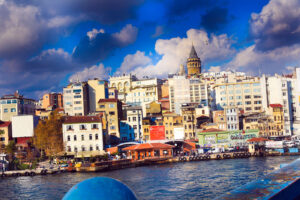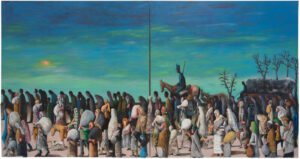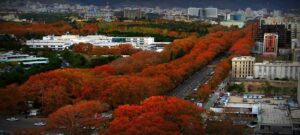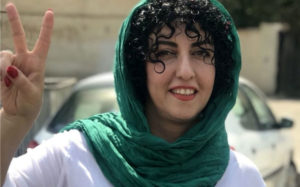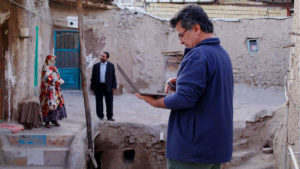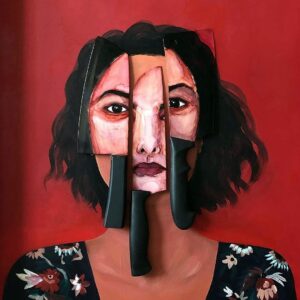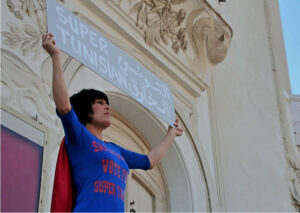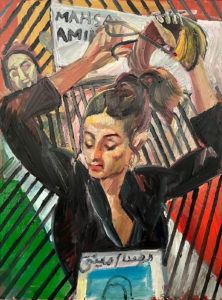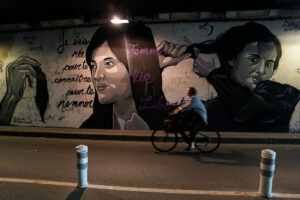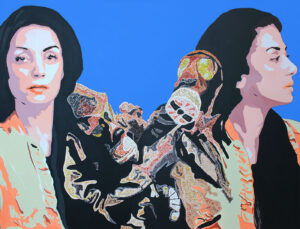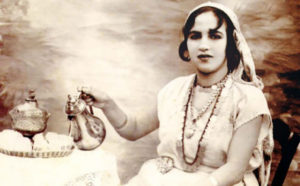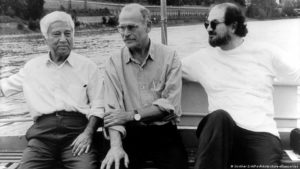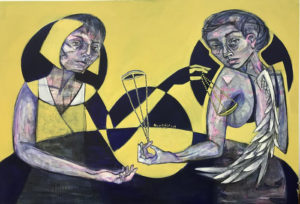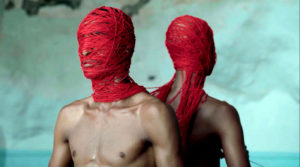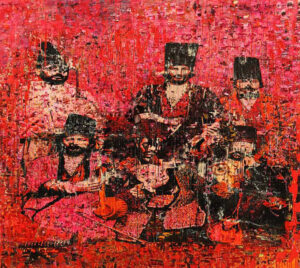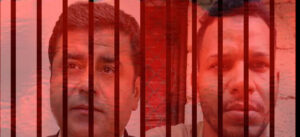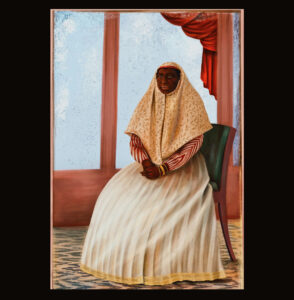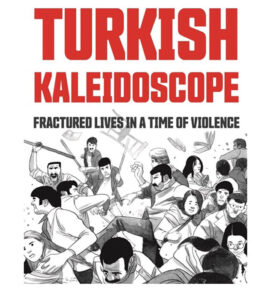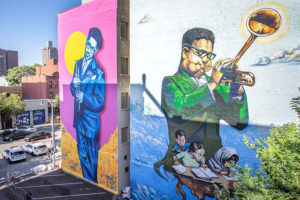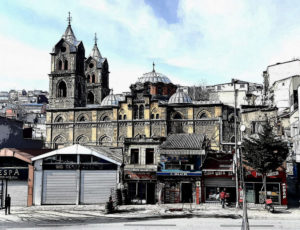Matthew Broomfield has reported from Kurdish-led North and East Syria (Rojava) and turns a critical eye to Dilar Dirik’s study on the Kurdish Women’s Movement.
The Kurdish Women’s Movement: History, Theory, Practice by Dilar Dirik
Pluto Press 2022
ISBN 9780745341941
Matthew Broomfield
We’re all familiar with the orientalized, fetishized image of the Kurdish warrior woman doing battle against ISIS. Part Amazon, part Angelina Jolie, she’s all too easily sanitized, Westernized, and plucked out of her context in the militant, women-led Kurdish liberation movement. In The Kurdish Women’s Movement: History, Theory, Practice, Kurdish academic Dilar Dirik aims to deepen and complicate this image, placing that movement in the context of decades of checkered, often-overlooked “History,” a unique historic and sociological “Theory,” and a “Practice” claiming to touch the lives of millions of women across the Middle East.
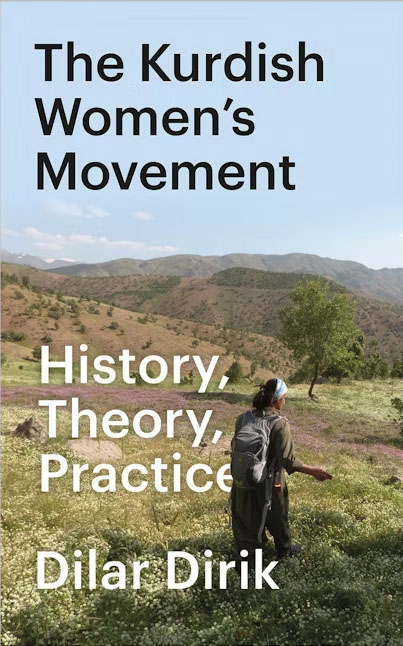
Writing from a position of admitted personal and political sympathy for the movement spearheaded by jailed Kurdish political leader Abdullah Öcalan, and his Kurdistan Workers’ Party (PKK), Dirik critiques what she calls the standard practice of counterpointing “superficial engagement with Öcalan’s writings with snapshot-like ethnographic impressions or news articles about the movement’s practice.” Rather, the Oxford University Fellow’s work seeks to take the movement seriously on its own terms, bridging the gap between overly enthusiastic accounts ascribing the Kurds a super-human proclivity for revolution, and reductive, normative analyses written from a purely academic perspective.
As such, it’s worth assessing the extent to which the movement’s claim to offer a systemic alternative to authoritarian nation-states and patriarchal, tribal or nuclear social organization stands up in its largest proving-ground to date — the Kurdish-led polity in North and East Syria (NES), built around the Kurdish heartland known as Rojava, where a civil administration has spent the past decade attempting to implement the ideals of the women’s movement. Dirik also addresses the Kurdish movement’s reach throughout Kurdish-populated Turkey, and to a lesser extent Iraq.
While Kurdistan is a stateless nation that covers a swath of Turkey, Syria, Iraq and Iran, there is no full chapter dedicated to the women’s movement in Iran, but the movement’s ideas are also present among that country’s Kurdish minority, as evidenced by the recent uprisings following the death of Kurdish Iranian Jina (Mahsa) Amini, as a result of which saw the Kurdish movement’s slogan “Jin, Jiyan, Azadî” (“Women, Life, Freedom”) reverberate around the world.
But it’s in NES that the optimistic, transformative vision of a “paradigmatic struggle against capitalist modernity” promoted by Dirik is put to the severest test — as I myself witnessed in the course of three years living in and reporting from the impoverished, embattled, and politically compromised region.
As Dirik emphasizes, the Kurdish movement didn’t appear from nothing with the establishment of de facto autonomy in Rojava following the outbreak of the Syrian civil war, and that region’s rapid rise to fame in the course of the war against ISIS. Rather, the PKK entered the political stage as a clandestine Marxist-Leninist guerrilla battling for an independent, socialist Kurdish state — a guerrilla characterized by the unusually wide ranging and increasingly active participation of women cadres. A growing recognition of the need for women-led political organization was precipitated by a marked change in Öcalan’s political analysis, particularly following his 1999 capture by the Turkish security forces, prompting a reassessment of the PKK’s strategy.
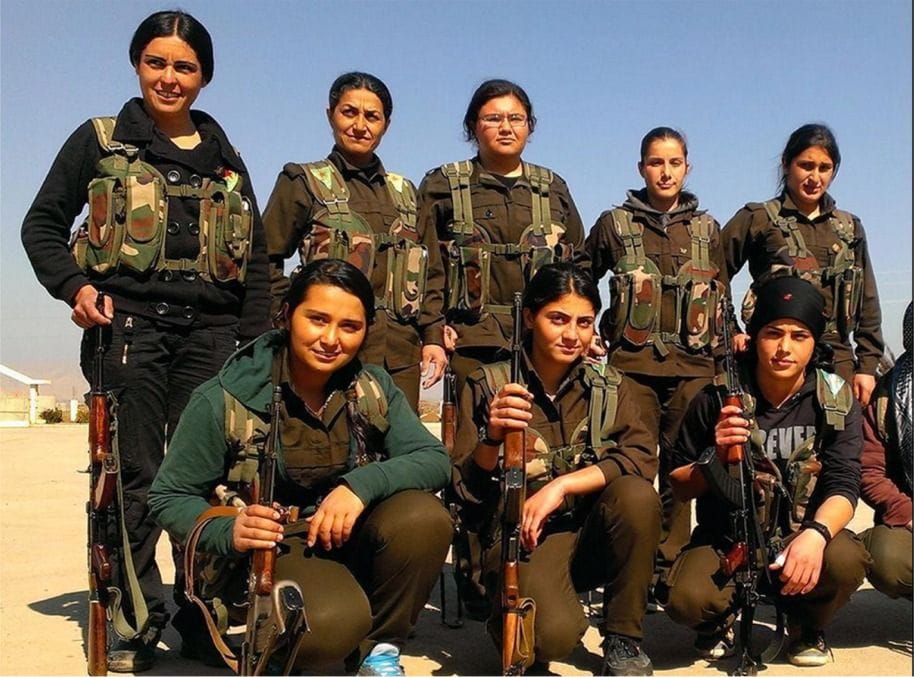
In her quest to take the intellectual contributions of the Kurdish movement and its leader seriously, Dirik sometimes downplays the impact of circumstance and realpolitik on the movement’s unexpected evolution. Öcalan’s move toward a system of federal, decentralized, dual-power organization was at least partly driven by the admitted impossibility of establishing a Kurdish state outright, and admitting this fact does nothing to diminish the significance of the movement’s subsequent achievements in that direction.
Similarly, it’s all but impossible to reconcile Dirik’s characterization of Öcalan as a benevolent repository of knowledge, particularly sympathetic to women’s struggles, waking up early to bestow flowers on female militants on International Women’s Day, with the image presented by, say, Aliza Marcus in her own critical history of the Kurdish movement (largely based on the accounts of disillusioned ex-party members), wherein Öcalan is represented as self-aggrandizing and calculating. Likely the truth lies somewhere in between.
In any case, it’s more interesting to recognize, as Dirik does, the emancipatory ideal Öcalan represents to millions of Kurdish women, given his clear and consistent representation of women as the “first colony” who must be liberated before the remainder of society can follow suit. Kurdish women are always at the forefront of any protest in Kurdistan demanding Öcalan’s release, and while their devotion to a male figurehead may seem contradictory to Western feminist eyes, it cannot be casually written off.
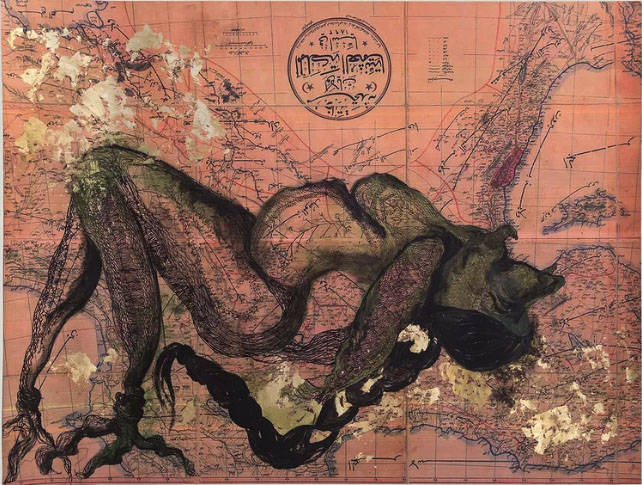
In the abstract, the sociological ‘women’s science’ known as “Jineolojî” or “Women-ology” appears vague and faintly New Age in its critique of male hierarchy. But this is a science in the same highly politicized sense that Marxism-Leninism presents itself as a “science” — an epistemic claim to place a repressed group at the center of social organization. By framing the 21st century as the century of the “women’s revolution,” the Kurdish movement tells women they are the fulcrum of history and social organization, just as Marxists once told industrial workers they held the keys to history, or Arab nationalists sought to harness the mass power of their own repressed peoples.
To this end, the intellectual contribution of the Kurdish women’s movement should rather be assessed on the strength of its ability to “communicate intellectual ideas and debates to oppressed and dispossessed movements.” It’s easy to recognize the politicized nature of Öcalan’s theories on history, but his “science” was crafted to put fire in Kurdish bellies, not pass peer review. This much, the women’s movement has certainly achieved.
It’s appropriate, therefore, that Dirik devotes ten times as many pages to “Practice” as “Theory.” The Kurdish women’s movement has achieved prior successes in organizing women in Kurdish neighborhoods, rural areas and refugee camps throughout Kurdish homelands currently forming part of Turkey, Iraq, Syria and Iran. But it’s in NES that the women’s movement has played a leading role in defeating ISIS and expanding a system of nominally decentralized, municipal governance now encompassing millions of residents, the majority of whom are Arabs, including many communities which both suffered under and sympathized with ISIS. As such, there’s an ambiguity to this region’s status as the site of the mass “practical implementation” of the lofty ideals of the women’s movement — a process bringing with it both the great challenges and great opportunities.
The Kurdish-led Autonomous Administration of North and East Syria (AANES) follows a political philosophy known as “democratic confederalism,” based on three principles from Öcalan’s thought: direct democracy, ecology, and women’s autonomy. While all three inter-relate, it’s readily apparent that the women’s “pillar” is the firmest. A continued reliance on the revenues from black-market oil sales has prevented any serious green transition, while the devolution of political decision-making authority remains partial. Local communities have a say over service provision and participate actively in restorative justice mechanisms, but in the context of ongoing attacks by Turkey, ISIS insurgency, and rampant poverty driven by war and the region’s isolation from the outside world, military and diplomatic strategy is necessarily directed by a primarily Kurdish cadre.
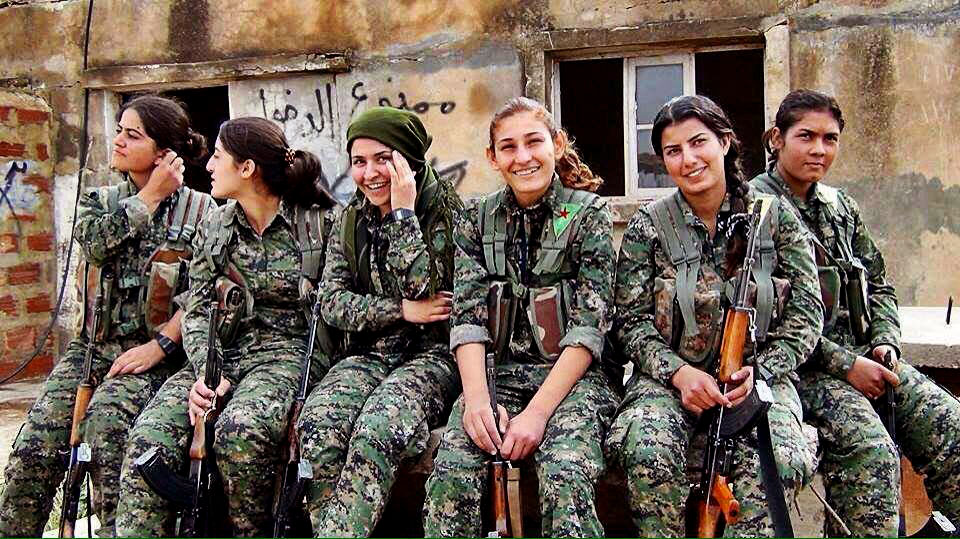
The “women’s revolution,” though, is readily apparent. As any visitor to the region will observe, women are indeed everywhere, holding community meetings, attending education programs, and of course playing a prominent military role. Even in the regions recently liberated from ISIS, the “Women’s Houses” providing bloodless resolution to social conflicts through female-led mediation are among the first projects to take root, even in the face of regular bombings by ISIS — achieving more prominence and success than the village-level communes intended to function as the building blocks of the direct democratic system.
On the social level, women of course continue to face confinement to the home, early marriage, honor killings, and all the other trappings of regional patriarchy. Many men with a position in AANES political structures are willing to pay lip service to women’s autonomy, while privately pushing their daughters to marry off at the appropriate time. But it’s precisely the fact that women continue to face such hardship that so many of them have seized the “revolution” with both hands. Alongside the total inversion in the status of Kurdish identity, it is the flourishing of women-led political organization, social outreach and cultural activity which gives the slow transformation in NES the flavor of revolution.
Dirik’s account of these achievements is smart, and avoids clichés. For example, the region is known for its “co-chair” system whereby each public office is filled by one man and one woman. As she aptly notes, critical claims this system is merely “symbolic” misses the point — symbols themselves have power, and the system forces men to listen to women’s perspectives in what she calls an “anti-authoritarian pedagogical method for internal democratization.”
In highly conservative Muslim communities, such steps are themselves revolutionary. Even if a relative minority of women have taken up the challenge of promoting women’s education and political self-determination in these communities, this does not delegitimize these women’s achievements, as some observers suggest when they draw a false binary between active participants in the revolution and “ordinary people” represented as more suspicious of women’s autonomy. After all, these willing participants were born and grew up in the same ordinary communities.
More broadly, Dirik argues that women’s autonomy in the region will necessarily look different to Western feminism. In his own account of the Rojava revolution, Thomas Schmidinger draws a similar distinction, arguing the “autonomy” the region takes as its political goal is a “collective” rather than “individual” autonomy. The aim was never to replace conservative, tribal norms with the individual freedom to become (say) a sexually promiscuous boss, but by granting women the power to address women’s issues among themselves as an autonomous unit, and speak with a powerful, collective voice in issues that concern them.
As a result, the revolutionary process regularly turns up decisions, positions and compromises that are unsettling to the Western gaze. For example, under the burden of being vilified as suspicious “houses of divorce,” women working in the “women’s houses” are more likely than their Western counterparts might be to advise married women facing abuse to return to the home. But leaving home in the Middle East comes with an even higher cost than it does in other parts of the world, while on the other hand social pressure and shame can be brought to bear more effectively on men, making community intervention a genuine alternative. Many women are able to flee home, and the region has seen hundreds of divorces after the process was legalized in 2012: but sometimes a community-led solution is more appropriate.
This is not a get-out-of-jail-free card, of course, and Dirik is not immune from valorizing aspects of the revolution deserving of more critical scrutiny. If she claims the “movement encourages solidarity-based communal forms of organizing childcare, production and so on,” it’s hard to see how this marks a revolutionary break from pre-existing modes of communal childcare, as women continue to perform almost all childcare roles with little formal support from the AANES.
To take another example, when describing the region’s unavoidable establishment of an internal security force (the Asayish) to deal with the serious threat posed by ISIS sleeper cells and Turkish and Syrian regime-sponsored attacks, the author is ready to take at face value the claim by a female Asayish member to have “overcom[e] the authoritarian personality created by the [Syrian] regime,” creating a new and more progressive institution. Certainly, the Asayish are in no way comparable to the brutal Syrian security forces, but claims this internal security unit is fundamentally different to a police force overstate the case. Commendably, the Asayish deploy locals to their own areas, reducing intra-community tension, but nonetheless their presence feels rather different in restive majority-Arab regions than it does in the Kurdish heartlands. Those who resent their presence are often ISIS sympathizers, if not active supporters: regardless, the unavoidable Asayish presence in these regions clearly feels and functions like a police force. Rather than downplaying the compromises into which the revolution has been forced, sympathetic accounts of the Rojava revolution can and must acknowledge the extreme pressures the region is under.
It’s therefore interesting to see where the women’s movement has chosen to push for reform or revolution, and where it has compromised. Thus it is, for example, that polygamy is outright banned in Kurdish regions, but still tolerated — though disapproved of — in Arab regions more recently liberated from ISIS. In one incident in 2020, women were banned from working in cafés in the former ISIS capital Raqqa after hours, as was the public consumption of alcohol, prompting puzzled inquiries from some Western journalists. But when I spoke to women’s activists in the city, they explained these measures specifically targeted cafés serving as a front for prostitution, as part of broader efforts to tackle the exploitation of impoverished war refugees, with the local Women’s Office working to find alternative forms of employment. This might not be the solution some Western feminists would hope for, but in the Syrian context, it was a valid and thoughtful move intended to protect women.
Dirik warns that the “space between a rock and hard place can open rooms for lines of thinking that rely on external state backing to temporarily protect gains, usually at great cost.” This much is true in NES, with the region forced into uneasy alliances and relationships with the USA, Russia and the central Syrian authorities. But operating in this troubled space also pushes the Kurdish movement into productive compromises, forcing it to understand and navigate tensions between its clear commitment to women’s liberation on the one hand and community self-determination on the other.
Often, women’s liberation has been prioritized, even at the risk of provoking male powerbrokers. On the one hand, Dirik argues, “liberal, pragmatist, centralist approaches” are coded as male, with the women’s movement pushing for more revolutionary, transformative approaches throughout the Kurdish movement’s history. But equally, as the author writes with reference to Kurdish dual-power organization in Turkey, female political organizers are more closely embedded in civil society, and are therefore able to demonstrate that “many women favor an end to gender-based discrimination, child marriage, bride exchange, polygamy, and bride price.” These aims, all steadily being implemented by the Kurdish movement in the face of stiff social opposition, are not extreme or implausible. Rather, the idea that “society would not accept change [is] a self-fulfilling prophecy.”
The challenge before the movement now is to refuse the assumption — anathema to the AANES’ bold valorization of the “brotherhood of peoples,” but commonly heard in private — that the restive Arab regions are too backward, parochial or Islamic to accept women-led social transformation. Although Kurdish men are also regularly taken to task for patriarchal norms, the Kurdish women’s movement itself is not immune from the idealization of Kurdish womanhood. Dirik warns that Kurdish male revolutionaries draw binaries between ‘revolutionary/liberated” women and “classical/traditional” women who remain confined to traditional social roles. But the women’s movement itself also plays a role in maintaining this binary, sometimes defaulting to an ideal of emancipated Kurdish womanhood, revolutionary cadres expressing (understandable) frustration with deeply entrenched patriarchy in Arab regions.
Rather, it’s the bold and continuing struggle to implement the Kurdish movement’s liberatory ideals in conservative, tribal regions which may push the movement on to achieve enduring success and stability beyond the Kurdish heartlands, as part of its ongoing transition from guerrilla force to quasi-state actor. If the movement genuinely wishes to offer a “paradigmatic” alternative to the Middle East, it must continue to reckon with the challenges of reaching these communities. It’s women who have proven most responsive to their message, and as the AANES education program, with its focus on women’s rights and autonomy, gradually reaches these regions, change will continue to spread.
As such, Dirik argues that asking whether the “revolution” in Rojava is a success or failure, or even a revolution at all, misses the point. Rather, the partial, imperfect process of social transformation in the region is part of a wider historical movement that began before and will continue after. Her own work should be read in the same spirit: as a vital contribution to the dynamic, ongoing conversation around a movement deserving of both more serious attention, and more critical scrutiny from its sympathizers.
In her introduction, Dirik writes that Kurds, women and movements (revolutionary, political) are all phenomena that have been oppressed throughout history. In its efforts to overcome repression, the Kurdish women’s movement has certainly achieved revolutionary results for these interlinked classes. A number of key challenges facing the Kurdish women’s movement, it could be argued, now lie in the opposite direction: in reaching Arab communities, changing the attitude of suspicious and conservative men, and successfully transitioning to quasi-state governance.



